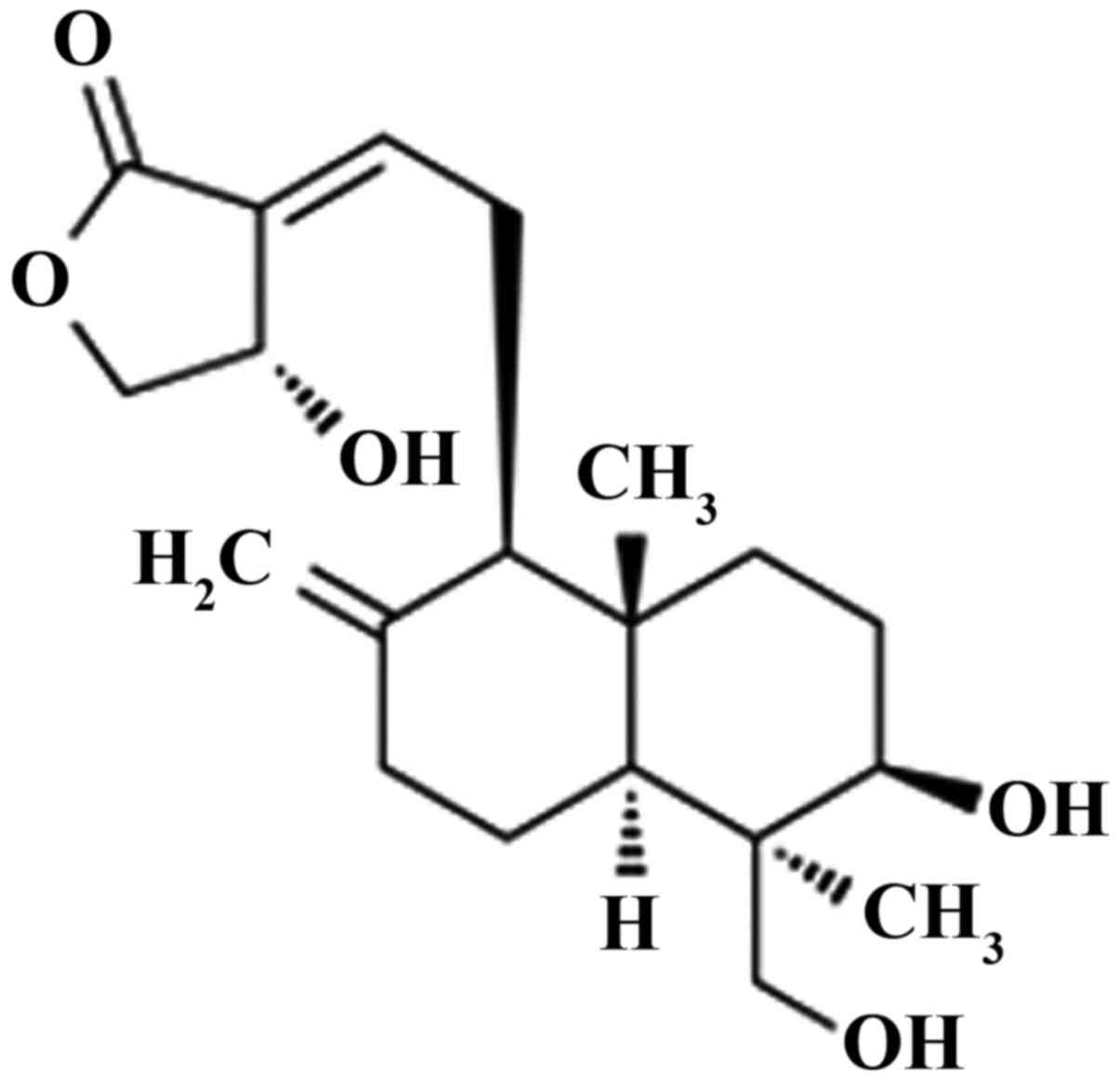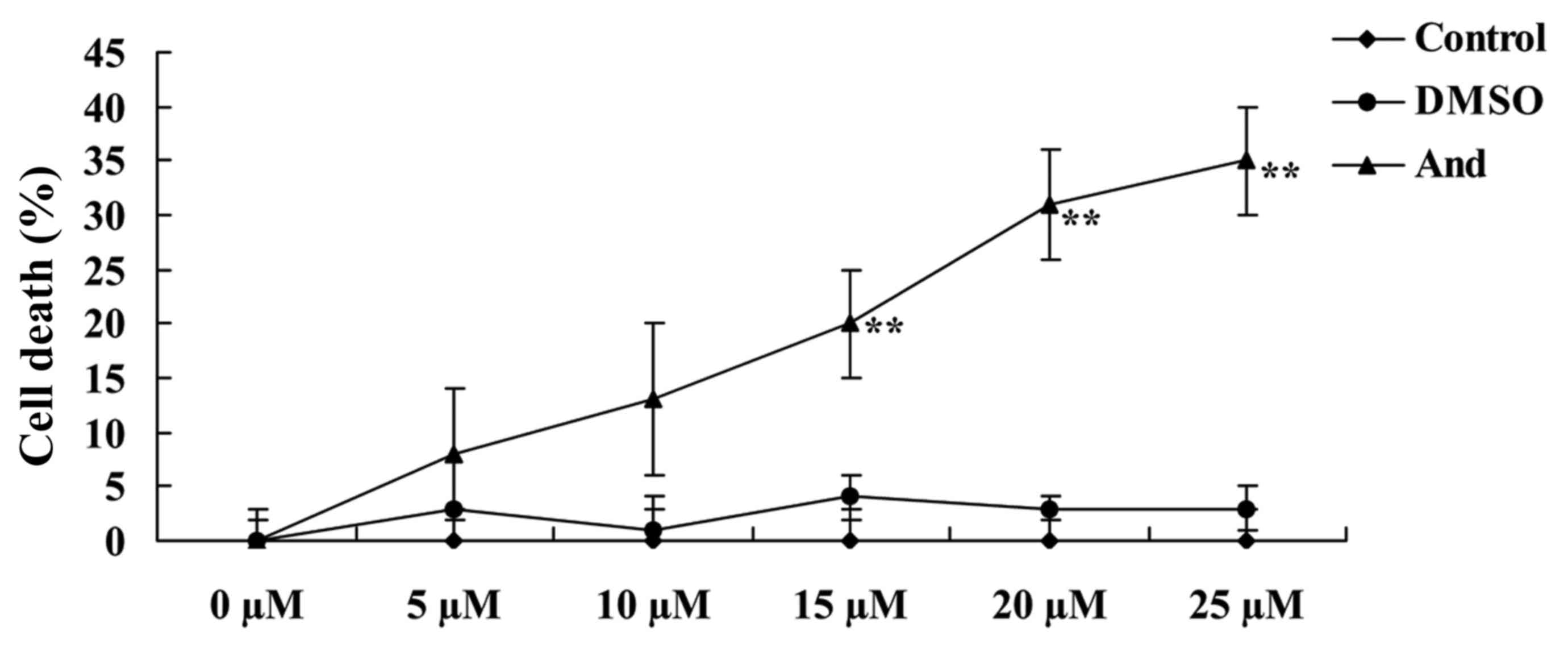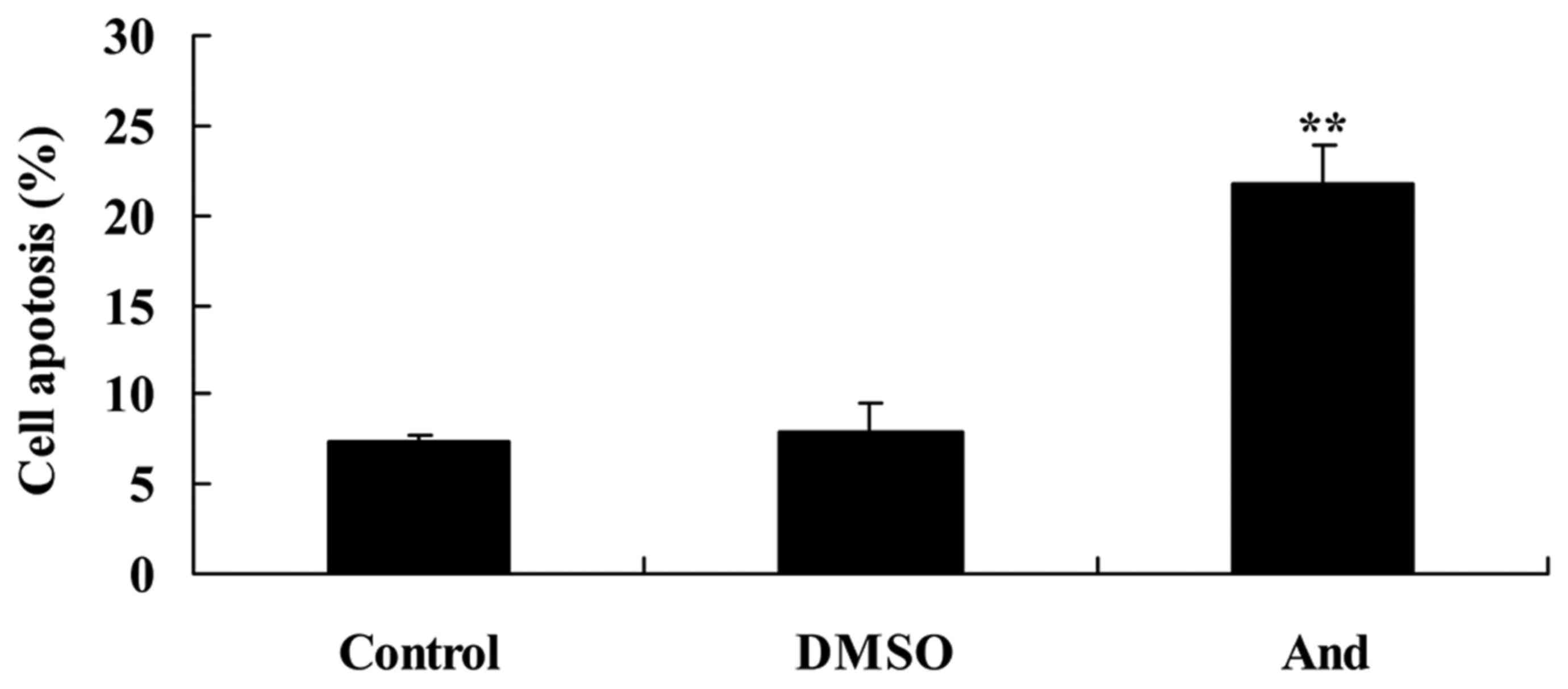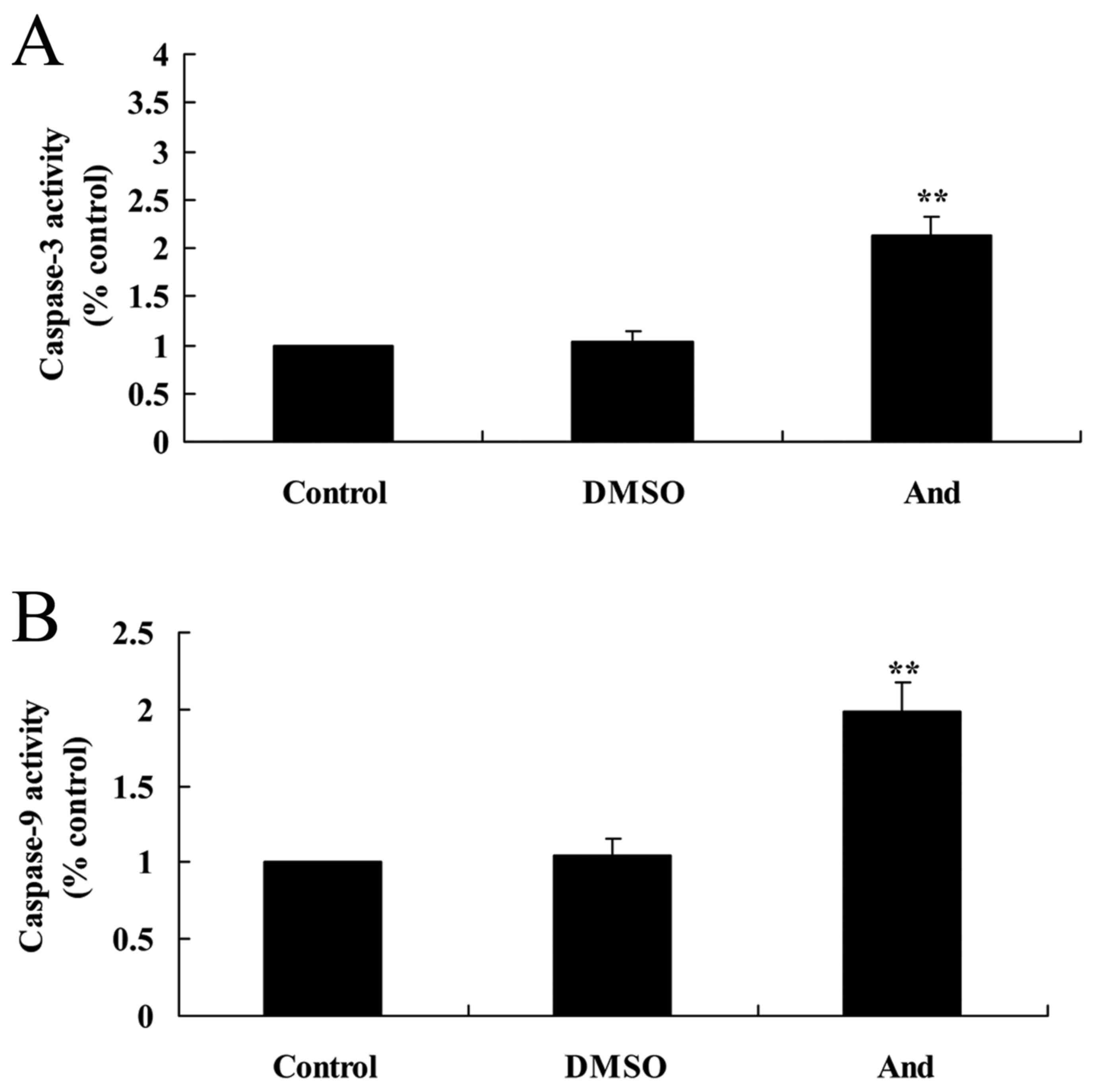|
1
|
Mathis KL, Green EM, Sargent DJ, Delaney
C, Simmang CL and Nelson H: Surgical quality surrogates do not
predict colon cancer survival in the setting of technical
credentialing: A report from the prospective COST trial. Ann Surg.
257:102–107. 2013. View Article : Google Scholar : PubMed/NCBI
|
|
2
|
Kim SK, Kim SY, Kim JH, Roh SA, Cho DH,
Kim YS and Kim JC: A nineteen gene-based risk score classifier
predicts prognosis of colorectal cancer patients. Mol Oncol.
8:1653–1666. 2014. View Article : Google Scholar : PubMed/NCBI
|
|
3
|
Huang TH, Chiu YH, Chan YL, Chiu YH, Wang
H, Huang KC, Li TL, Hsu KH and Wu CJ: Prophylactic administration
of fucoidan represses cancer metastasis by inhibiting vascular
endothelial growth factor (VEGF) and matrix metalloproteinases
(MMPs) in Lewis tumor-bearing mice. Mar Drugs. 13:1882–1900. 2015.
View Article : Google Scholar : PubMed/NCBI
|
|
4
|
Miao Z, Zhao T, Wang Z, Xu Y, Song Y, Wu J
and Xu H: CARMA3 is overexpressed in colon cancer and regulates
NF-κB activity and cyclin D1 expression. Biochem Biophys Res
Commun. 425:781–787. 2012. View Article : Google Scholar : PubMed/NCBI
|
|
5
|
Tanaka S, Toki T, Yokoyama M, Shimizu H,
Yamasaki T, Yoneda Y, Muro F, Yasukochi T, Iimura S and Morishita
K: A novel inhibitor of I-kappaB kinase beta ameliorates
experimental arthritis through downregulation of proinflammatory
cytokines in arthritic joints. Biol Pharm Bull. 37:87–95. 2014.
View Article : Google Scholar : PubMed/NCBI
|
|
6
|
Miller JA, Kirkley KA, Padmanabhan R,
Liang LP, Raol YH, Patel M, Bialecki RA and Tjalkens RB: Repeated
exposure to low doses of kainic acid activates nuclear factor kappa
B (NF-κB) prior to seizure in transgenic NF-κB/EGFP reporter mice.
Neurotoxicology. 44:39–47. 2014. View Article : Google Scholar : PubMed/NCBI
|
|
7
|
Yin SC, Liao EC, Chiu CL, Chang CY and
Tsai JJ: Der p2 internalization by epithelium synergistically
augments toll-like receptor-mediated proinflammatory signaling.
Allergy Asthma Immunol Res. 7:393–403. 2015. View Article : Google Scholar : PubMed/NCBI
|
|
8
|
Ojha D, Mukherjee H, Mondal S, Jena A,
Dwivedi VP, Mondal KC, Malhotra B, Samanta A and Chattopadhyay D:
Anti-inflammatory activity of Odina wodier Roxb, an Indian
folk remedy, through inhibition of toll-like receptor 4 signaling
pathway. PLoS One. 9:e1049392014. View Article : Google Scholar : PubMed/NCBI
|
|
9
|
Charrier E, Cordeiro P, Brito RM, Harnois
M, Mezziani S, Herblot S, Le Deist F and Duval M: Impaired
interferon-alpha production by plasmacytoid dendritic cells after
cord blood transplantation in children: Implication for
post-transplantation toll-like receptor ligand-based immunotherapy.
Biol Blood Marrow Transplant. 20:1501–1507. 2014. View Article : Google Scholar : PubMed/NCBI
|
|
10
|
Aromdee C: Andrographolide: Progression in
its modifications and applications-a patent review (2012–2014).
Expert Opin Ther Pat. 24:1129–1138. 2014. View Article : Google Scholar : PubMed/NCBI
|
|
11
|
Bera R, Ahmed SK, Sarkar L, Sen T and
Karmakar S: Pharmacokinetic analysis and tissue distribution of
andrographolide in rat by a validated LC-MS/MS method. Pharm Biol.
52:321–329. 2014. View Article : Google Scholar : PubMed/NCBI
|
|
12
|
Lin HH, Shi MD, Tseng HC and Chen JH:
Andrographolide sensitizes the cytotoxicity of human colorectal
carcinoma cells toward cisplatin via enhancing apoptosis pathways
in vitro and in vivo. Toxicol Sci. 139:108–120. 2014. View Article : Google Scholar : PubMed/NCBI
|
|
13
|
Yang T, Sheng HH, Feng NP, Wei H, Wang ZT
and Wang CH: Preparation of andrographolide-loaded solid lipid
nanoparticles and their in vitro and in vivo evaluations:
Characteristics, release, absorption, transports, pharmacokinetics
and antihyperlipidemic activity. J Pharm Sci. 102:4414–4425. 2013.
View Article : Google Scholar : PubMed/NCBI
|
|
14
|
Roy DN, Sen G, Chowdhury KD and Biswas T:
Combination therapy with andrographolide and d-penicillamine
enhanced therapeutic advantage over monotherapy with
d-penicillamine in attenuating fibrogenic response and cell death
in the periportal zone of liver in rats during copper toxicosis.
Toxicol Appl Pharmacol. 250:54–68. 2011. View Article : Google Scholar : PubMed/NCBI
|
|
15
|
Dong M, Yang G, Liu H, Liu X, Lin S, Sun D
and Wang Y: Aged black garlic extract inhibits HT29 colon cancer
cell growth via the PI3K/Akt signaling pathway. Biomed Rep.
2:250–254. 2014. View Article : Google Scholar : PubMed/NCBI
|
|
16
|
He Y, Ge H and Li S: Haematoporphyrin
based photodynamic therapy combined with hyperthermia provided
effective therapeutic vaccine effect against colon cancer growth in
mice. Int J Med Sci. 9:627–633. 2012. View Article : Google Scholar : PubMed/NCBI
|
|
17
|
Nagasaki T, Hara M, Nakanishi H, Takahashi
H, Sato M and Takeyama H: Interleukin-6 released by colon
cancer-associated fibroblasts is critical for tumour angiogenesis:
Anti-interleukin-6 receptor antibody suppressed angiogenesis and
inhibited tumour-stroma interaction. Br J Cancer. 110:469–478.
2014. View Article : Google Scholar : PubMed/NCBI
|
|
18
|
Zhai Z, Qu X, Yan W, Li H, Liu G, Liu X,
Tang T, Qin A and Dai K: Andrographolide prevents human breast
cancer-induced osteoclastic bone loss via attenuated RANKL
signaling. Breast Cancer Res Treat. 144:33–45. 2014. View Article : Google Scholar : PubMed/NCBI
|
|
19
|
Lim JC, Jeyaraj EJ, Sagineedu SR, Wong WS
and Stanslas J: SRS06, a new semisynthetic andrographolide
derivative with improved anticancer potency and selectivity,
inhibits nuclear factor-kappaB nuclear binding in the A549
non-small cell lung cancer cell line. Pharmacology. 95:70–77. 2015.
View Article : Google Scholar : PubMed/NCBI
|
|
20
|
Li X, Qian D, Ju F and Wang B:
Upregulation of Toll-like receptor 2 expression in colorectal
cancer infected by human cytomegalovirus. Oncol Lett. 9:365–370.
2015.PubMed/NCBI
|
|
21
|
Feng J, Guo C, Zhu Y, Pang L, Yang Z, Zou
Y and Zheng X: Baicalin down regulates the expression of TLR4 and
NFkB-p65 in colon tissue in mice with colitis induced by dextran
sulfate sodium. Int J Clin Exp Med. 7:4063–4072. 2014.PubMed/NCBI
|
|
22
|
Zhang QQ, Zhou DL, Ding Y, Liu HY, Lei Y,
Fang HY, Gu QL, He XD, Qi CL, Yang Y, et al: Andrographolide
inhibits melanoma tumor growth by inactivating the TLR4/NF-κB
signaling pathway. Melanoma Res. 24:545–555. 2014. View Article : Google Scholar : PubMed/NCBI
|
|
23
|
Lee DH, Nam YJ and Lee CS:
Quercetin-3-O-(2′'-galloyl)-α-L-rhamnopyranoside attenuates
cholesterol oxidation product-induced apoptosis by suppressing
NF-κB-mediated cell death process in differentiated PC12 cells.
Naunyn Schmiedebergs Arch Pharmacol. 388:869–881. 2015. View Article : Google Scholar : PubMed/NCBI
|
|
24
|
Chen D, Su A, Fu Y, Wang X, Lv X, Xu W, Xu
S, Wang H and Wu Z: Harmine blocks herpes simplex virus infection
through downregulating cellular NF-κB and MAPK pathways induced by
oxidative stress. Antiviral Res. 123:27–38. 2015. View Article : Google Scholar : PubMed/NCBI
|
|
25
|
Lv Z, Li C, Zhang W, Jin C, Shao Y, Xuemei
D and Qingxi H: Nemo like kinase negatively regulates NF-κB
activation and coelomocytes apoptosis in Apostichopus
japonicus. Dev Comp Immunol. 54:109–115. 2016. View Article : Google Scholar : PubMed/NCBI
|
|
26
|
Peng T, Hu M, Wu TT, Zhang C, Chen Z,
Huang S and Zhou XH: Andrographolide suppresses proliferation of
nasopharyngeal carcinoma cells via attenuating NF-κB pathway.
Biomed Res Int. 2015:7350562015. View Article : Google Scholar : PubMed/NCBI
|
|
27
|
Nakamura R, Kuwabara H, Yoneda M,
Yoshihara S, Ishikawa T, Miura T, Nozaka H, Nanashima N, Sato T and
Nakamura T: Suppression of matrix metalloproteinase-9 by
4-methylumbelliferone. Cell Biol Int. 31:1022–1026. 2007.
View Article : Google Scholar : PubMed/NCBI
|
|
28
|
Li J, Sun R, Tao K and Wang G: The
CCL21/CCR7 pathway plays a key role in human colon cancer
metastasis through regulation of matrix metalloproteinase-9. Dig
Liver Dis. 43:40–47. 2011. View Article : Google Scholar : PubMed/NCBI
|
|
29
|
Luo W, Liu Y, Zhang J, Luo X, Lin C and
Guo J: Andrographolide inhibits the activation of NF-κB and MMP-9
activity in H3255 lung cancer cells. Exp Ther Med. 6:743–746. 2013.
View Article : Google Scholar : PubMed/NCBI
|























